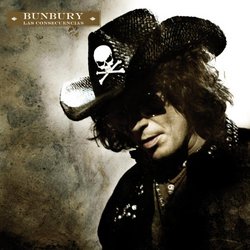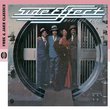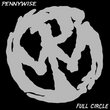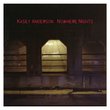| All Artists: Enrique Bunbury Title: Las Consecuencias Members Wishing: 1 Total Copies: 0 Label: Capitol Original Release Date: 1/1/2010 Re-Release Date: 3/9/2010 Genres: Rock, Latin Music Style: Latin Rock Number of Discs: 1 SwapaCD Credits: 1 UPC: 5099962779425 |
Search - Enrique Bunbury :: Las Consecuencias
 | Enrique Bunbury Las Consecuencias Genres: Rock, Latin Music
Bunbury is set to release his highly anticipated new album Las Consecuencias through EMI/ Capitol Latin. The first single "Frente a Frente" is a remake of the popular hit song made famous in 1981 by singer Jeannette. For h... more » |
Larger Image |
CD DetailsSynopsis
Album Description Bunbury is set to release his highly anticipated new album Las Consecuencias through EMI/ Capitol Latin. The first single "Frente a Frente" is a remake of the popular hit song made famous in 1981 by singer Jeannette. For his first single, Bunbury collaborated with Tulsa singer, Miren Iza who added a special emotion and character with her unique voice to song. The music video, directed by Antonio Bayona (The Orphanage) includes a special cameo appearance by singer Jeannette. Las Consecuencias was produced by Bunbury himself and it features an intimate look into his storytelling lyrics and acoustic/ electric musical arrangements. Similar CDs
|
CD ReviewsConviene asustar un poco? R. Suarez Giacoman | Mc Allen, Texas United States | 03/11/2010 (5 out of 5 stars) "After the electric/guitar-filled Hellville De Luxe, Enrique delivers his newest album, defined by himself as an intimate work and "chamber music". Recorded during the 'Hellville de tour', 'Las consecuencias' present 10 new songs (without a doubt these can be included among the best songs he has written in his solo career) in an LP format. Whether you get this on CD or LP format, the album is divided on two sides, the first five songs acoustic tunes with the second part of the album being more electric. The cover picture, by JoseGirl, clearly shows before even listening to the album, that this is the 'dark' follow up to Hellville de Luxe. Some songs may be reminiscent of El Tiempo de Las Cerezas, especially 'De todo el mundo', but then again this is Enrique as he has never sounded before, open and heartbreaking. The opening track, "Las consecuencias" is a slow and dark theme descriptive of what you are about to listen to, Bunbury clearly states in the chorus 'Porque siempre conviene alegrar a la gente, tambien de vez en cuando esta bien asustar un poco' The second track, "Ella me dijo que no" is as Beatle as Enrique will ever be. This is a song that could be inserted in any Beatle album from their last years (say Revolver (Remastered) or even Abbey Road (Remastered)) and It would not sound out of place. Great lyrics, an amazing Ana Belen Estaje and a particularly good performance by Enrique. One of the highlights of the album. Enrique has always been fascinated by the figure of the boxer (let us remember the whole conceptual 'Flamingos' and its cover), a character that falls only to rise again in the third track, "El boxeador". Metaphorical in nature, this acoustic soft song takes the character to a new level, 'golpea mejor, quien golpea primero, levantate antes de que cuente hasta diez' Enrique says in the chorus. Ironically, the fourth track and single 'Frente a frente' (with its shockingly bizarre video) seems to be the only song that sounds out of place compared with the rest of the album. It is a great cover version and Miren Iza does a great job performing this song with Enrique. I can only understand its presence in the album after reading Enrique explaining in an interview that EMI needed a single and he already had this cover version prepared for a Jeannette tribute that never took place. "21 de Octubre" continues with the same acoustic mood, Dylanesque guitars, a soft and intimate melody with aggressive lyrics. "Lo que mas te gusto de mi", is another great example of why Bunbury is considered a great lyricist, the music could be defined as Flamingos-meets-El tiempo de las cerezas, a very intriguing Mediterranean sound. Enrique's new band sounds better than in Hellville and Jorge Rebenaque shines in this track, so does Miren Iza backing vocals. This song starts side B of the LP format in which the album was released and includes more electric songs. "Los habitantes" sounds more like the Bunbury we are used to from prior works. This is actually the most electric song in the album with an incredible guitar riff in it. The lyrics are some of the best of the album. "Es hora de hablar" is without a doubt my favorite track of the album, the combination of lyrics, the Japanese violin, the guitars and Enrique's voice crying as he sings make this one of the best songs in Enrique's career in my opinion. The album builds up to its end and reaches its highest peak in track 8. "De todo el mundo" is a classic ballad (quite reminiscent of "El rumbo de tus sueños") that follows the same line in lyrics from "El extranjero". Enrique talks about himself having no owner and how he belongs to the world ('Soy vagabundo siempre de paso, de aqui de alla, de todo el mundo') One thing I liked of this song (and the whole album) is how Enrique's voice sounds softer than in prior works; he himself has said that while recording this album he was more focused on his voice and singing well than in the production details as he did for previous albums, and that is something you notice from the very first song in 'Las consecuencias' Fans of Enrique will recognize the last track of the album, "Nunca se convence del todo a nadie de nada" from the tribute album released back in 2008. This song back then was performed by Niños del Brasil and was given to them by Enrique. As with "Ahora" and "Ven y camina conmigo", he decided to record his own version of the song. An excellent song to complete and close the album, Bunbury sings once again accompanied by Miren Iza. Enrique once again delivers a profound, round album, highly recommended if you are a fan or music lover in general. " Eclectic, Dark Awesome Record Jason Torres | Miami | 03/10/2010 (5 out of 5 stars) "It has been really a long suffering having to wait so long for this record to be published in America.
After the extraordinary and suspenseful "Hellville De Luxe" El extranjero... El hombre delgado que no flaqueara jamas... El Vampiro de los que le habitan... Enrique Bunbury returns with another dramatic work of art that once again integrates great lyrics and a fusion of sounds that are part of his extensive journey through so many cultures and influences, there are parts on the record where obviously you can perceive the constant "Dylanesque/Cohenesque" beat that accompanies most of his records, but there is a bit of the 70's and early 80' Hispanoamerican pop, and also something very personal and unique in the words about how dark it gets to be, and the way each track is assemble. Besides "Frente a Frente" a hit from Jeanette in 1981 -which is clearly the radio single, there are many spectacular cuts in this record, I have to say "Ella me dijo que no" is a song that grows on you, El boxeador, and Los Habitantes both have a really great classic Bunbury feeling, "Nunca se convence del Todo a Nadie de Nada" sounds gracefully a lot like Jackson Brown's version of "A thousand kisses deep by Leonard Cohen. But there are also more intimate, eclectic songs like "21 de Octubre" and "Es hora de Hablar" and "De todo el mundo" All integrated as well as Bunbury does it, makes another great album, One day we are going to look back and say, this guy is probably the greatest most influential Spanish speaking rock artist from our generation." |

 Track Listings (10) - Disc #1
Track Listings (10) - Disc #1


